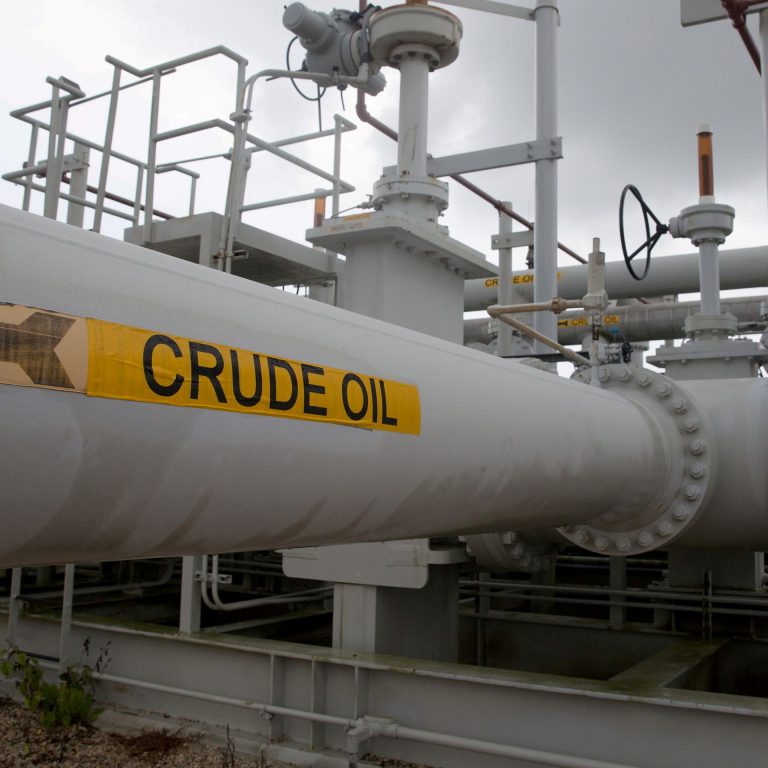
The federal government of Nigeria has taken a bold step to combat the pervasive issue of oil theft by approving a $21 million contract to construct a metering system across 187 crude oil flow stations.
This initiative, announced by Heineken Lokpobiri, Minister of State for Petroleum Resources (Oil), aims to reorganize the oil and gas sector and enhance accountability and transparency in oil production.
The approval of this contract by the Federal Executive Council (FEC), presided over by President Bola Tinubu, marks a decisive move to address one of Nigeria’s most pressing economic challenges. Lokpobiri emphasized the importance of this development during a press briefing in Abuja, highlighting that the project is expected to be completed within six months.
Tekedia Mini-MBA edition 16 (Feb 10 – May 3, 2025) opens registrations; register today for early bird discounts.
Tekedia AI in Business Masterclass opens registrations here.
Join Tekedia Capital Syndicate and invest in Africa’s finest startups here.
“One of the key approvals by the FEC has to do with awarding a contract for the metering of our 187 flow stations across the Niger Delta region by the Nigerian Upstream Petroleum Regulatory Commission (NUPRC),” Lokpobiri stated. “NUPRC is the apex regulatory commission for the Nigerian oil and gas upstream sector. As part of our steps to ensure that we have proper accountability, FEC approves the metering of all our oil production.”
The metering system will measure and regulate the flow rate of crude oil, providing accurate data on production and export levels. This development is crucial in a country where oil theft has severely hampered growth, with losses ranging from 5 to 30 percent of daily production.
Tajudeen Abbas, Speaker of the House of Representatives, recently disclosed that Nigeria lost approximately $46 billion to crude oil theft over 11 years.
In March 2023, the Nigerian Senate reported a loss of 65.7 million barrels of crude oil, valued at $83 per barrel, translating to a staggering revenue loss of N2.3 trillion due to oil theft. This significant financial drain underscores the urgent need for effective measures to curb the menace.
Advanced Cargo Tracking for Enhanced Monitoring
In addition to the metering system, the federal government has approved another key initiative aimed at improving transparency and accountability in the oil sector. This initiative involves using advanced cargo tracking technology to monitor the movement of crude oil from loading points in Nigeria to their final destinations. This idea was proposed by Professor Ndubuisi Ekekwe of Tekedia Institute in 2022.
“The second memo that was approved by the council has to do with what we call the advanced cargo, which means we are awarding a contract to a company that will provide the technology within 180 days,” Lokpobiri explained. “This will enable us to know from the point of loading of every cargo of crude oil that is loaded in Nigeria up to the point of destination.”
This advanced tracking system will allow officials to monitor crude oil shipments in real-time, ensuring that every barrel of oil produced is accounted for from extraction to export.
“From terminals, I can stay in my office and know when it is taken off from Nigeria up to the final destination,” Lokpobiri added.
The Initiative Comes with Challenges and Concerns
While the government’s initiatives are ambitious and promising, there are concerns about their sustainability and effectiveness. The introduction of technological solutions to secure oil installations is not new. In 2022, the Nigerian National Petroleum Company (NNPC) launched a mobile app to monitor oil installations and curb crude oil theft. The app, named ‘Crude Theft Monitoring Applications,’ aimed to enable early reporting of oil theft incidents, encouraging immediate action from security and government authorities.
Despite these efforts, oil theft continued unabated in the Niger Delta region, raising doubts about the potential success of the new metering and tracking initiatives. Critics argue that without robust enforcement and continuous oversight, these technological solutions might fail to achieve their intended goals.
Historical Background of Oil Theft in Nigeria
The history of oil theft in Nigeria is a long and troubling one. The country’s oil-rich Niger Delta has been plagued by illegal bunkering, pipeline vandalism, and other forms of oil theft for decades. These activities not only deprive the nation of significant revenue but also contribute to environmental degradation and social unrest in the region.
Efforts to combat oil theft have been met with mixed results, with security operatives tasked with the protection of oil installations being accused of aiding the thievery. Various administrations have launched initiatives to address the problem, from military interventions to community-based surveillance programs. However, the complexity and scale of the issue have often rendered these efforts ineffective.
Despite the skepticism, the new metering and tracking initiatives have the potential to make a meaningful impact if implemented effectively. The metering system will provide accurate data on production levels, reducing opportunities for illegal siphoning of crude oil. The advanced cargo tracking technology will ensure that every barrel of oil is monitored from extraction to export, enhancing transparency and accountability.
While the government’s commitment to completing these projects within six months demonstrates a sense of urgency and determination, experts note that the success of these initiatives will ultimately depend on continuous monitoring, enforcement, and the cooperation of all stakeholders involved in the oil industry.



